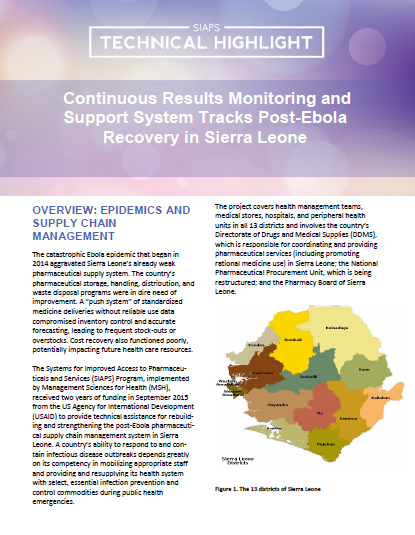
The catastrophic Ebola epidemic that began in 2014 aggravated Sierra Leone’s already weak pharmaceutical supply system. The country’s pharmaceutical storage, handling, distribution, and waste disposal programs were in dire need of improvement. A “push system” of standardized medicine deliveries without reliable use data compromised inventory control and accurate forecasting, leading to frequent stock-outs or overstocks. Cost recovery also functioned poorly, potentially impacting future health care resources.
The Systems for Improved Access to Pharmaceuticals and Services (SIAPS) Program, implemented by Management Sciences for Health (MSH), received two years of funding in September 2015 from the US Agency for International Development (USAID) to provide technical assistance for rebuilding and strengthening the post-Ebola pharmaceuti-cal supply chain management system in Sierra Leone. SIAPS helped the country institute a continuous results monitoring and support system (CRMS) to assess baseline challenges in pharmaceutical management and regularly track and support improvement in key areas. The CRMS uses a series of indicators to track and monitor factors that influence medicine availability and disease case management. Developed in Ethiopia in 2009 to bolster malaria treatment, CRMS has proven valuable in tracking performance trends so that partners and stakeholders can come together to address service gaps.


